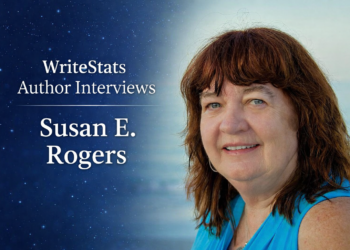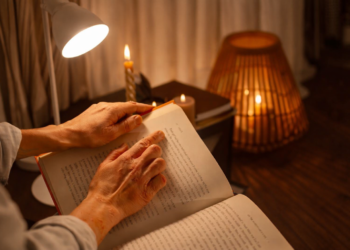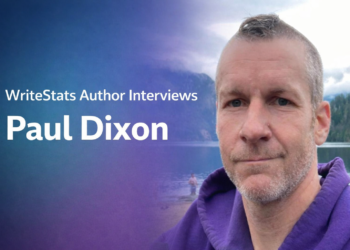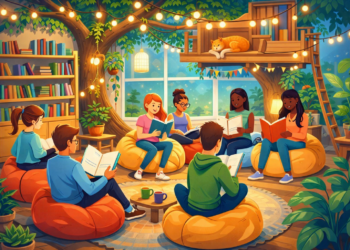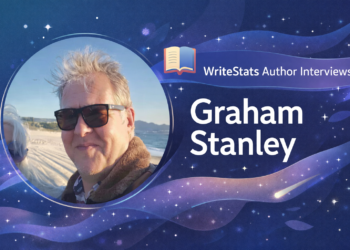Every writer has wondered it at some point: “When do writers write best?” Is it the crack of dawn when the world is quiet and the coffee is hot, or is it midnight, when imagination runs wild and filters fall away?
For decades, authors have debated whether creativity thrives on discipline or inspiration. However, recent data from multiple studies tracking over 10,000 writers reveal a pattern in when writers produce their best work.
And that pattern might surprise you.
Drawing on aggregated research and author behavior data, this article explores when writers write best, why timing affects creativity and focus, and how you can use science-backed strategies to find your personal writing rhythm.
Why “When Do Writers Write Best” Is the Key to Writing Smarter, Not Longer
Most productivity advice for writers focuses on how to write: outlines, tools, word-count goals, and accountability systems. Yet few talk about when to write. According to a 2024 RescueTime creative productivity study, authors who consistently wrote during their natural “energy peaks” were 31% more likely to meet weekly writing goals than those who wrote at random times.
That’s a huge gap, and it suggests that the secret to writing more isn’t necessarily about motivation or discipline. It’s about alignment with your creative biology.
As we highlighted in 5 Research Trends Every Author Should Know Before 2026, data-driven approaches are transforming how authors work. Understanding your creative timing is now just as essential as mastering plot arcs or marketing strategies.
The Data Behind Creative Timing: Insights from 10,000+ Writers
Let’s start with what the aggregated research says. Across multiple sources, clear time-of-day patterns emerged:
- Grammarly’s 2024 Usage Study (covering millions of documents) showed the highest writing volume between 8:00 AM and 12:00 PM, but not necessarily the best writing quality.
- NaNoWriMo participant data from 2023 revealed that authors who wrote during evening sessions (7:00–11:00 PM) were 18% more likely to hit their word count targets.
- RescueTime’s focus tracking found that users in creative fields hit their longest “deep work” streaks between 9:00 PM and midnight.
- A 2020 University of Toronto psychology study on chronotypes confirmed that creative problem-solving often peaks during non-optimal hours. For morning people, this means evening, and vice versa.
So, when do writers write best? The short answer: when they honor their natural circadian rhythm, but that rhythm differs from person to person.
Morning Writers: The Discipline Advantage
There’s a reason so many bestsellers begin before breakfast. Early mornings remain the most common writing time among professional authors, according to Grammarly’s author behavior data and surveys from The Creative Penn community.
Why Mornings Work for Many Writers
- Mental clarity. After rest, your brain’s executive function is at its sharpest. That means less resistance to planning, structuring, and organizing complex ideas.
- Fewer distractions. Early writing minimizes interruptions, critical for writers balancing family or day jobs.
- Momentum-building. Starting early creates psychological momentum that carries through the day.
According to RescueTime, writers who log their first writing session before 9:00 AM complete 42% more total weekly writing time than those who start later. It’s not necessarily that they’re more inspired; they’re simply more consistent.
Best Practices for Morning Writing
- Write before checking email or messages.
- Prepare your workspace the night before: open your document, jot your next scene note, and set a timer.
- Use caffeine strategically: one cup 20 minutes before your session can increase alertness without over-stimulation.
When do writers write best? For disciplined early risers, the answer may be “as soon as the sun comes up.”
Afternoon Writers: Turning the Midday Slump into Momentum
Afternoons often get a bad reputation, with post-lunch fatigue, incoming messages, and countless distractions. But NaNoWriMo data shows that roughly 25% of participants log their most productive writing sessions between 1:00 and 5:00 PM.
This time window tends to favor nonfiction authors, editors, and anyone whose work demands logic and analysis.
Why Afternoons Work for Certain Writers
- Analytical focus peaks: Cognitive control and critical thinking reach their highest point mid-afternoon, making it an ideal time for editing or outlining.
- Workday structure helps: If you treat writing like a job, a set afternoon block can become sacred, protected time.
- Energy rebound: For many people, physical energy dips after lunch, but mental persistence rises.
A 2023 HubSpot content productivity survey found that B2B and creative professionals produced their cleanest drafts in the mid-afternoon hours, possibly due to lower emotional reactivity and higher problem-solving ability.
Afternoon Writing Strategy
If mornings feel rushed and nights feel unfocused, experiment with a 2:00 PM writing sprint. Try pairing your writing with a cue, such as tea, instrumental music, or a specific location. Consistent cues can turn afternoons into automatic focus zones.
Night Writers: The Creative Edge of Darkness
Ask any novelist who’s ever stayed up past midnight: there’s something magical about writing in silence. And research supports that instinct.
According to a RescueTime 2024 creative focus report, users logging work between 9:00 PM and 1:00 AM produced the longest uninterrupted writing sessions, averaging 94 minutes of flow. Meanwhile, NaNoWriMo self-reports suggest that evening writers tend to describe their sessions as more “immersive” and “intuitive.”
Why Nighttime Unlocks Creativity
- Reduced inhibition: The prefrontal cortex relaxes as fatigue sets in, which boosts idea generation.
- Ambient quiet: Night reduces environmental stimuli, allowing sustained immersion.
- Emotional depth: A 2019 study in Creativity Research Journal found higher emotional expression and originality scores in late-night creative writing tasks.
Best Practices for Night Writers
- Keep lighting soft and warm to maintain focus without overstimulation.
- Avoid caffeine after 7:00 PM to protect sleep quality.
- Use white noise or instrumental tracks to sustain concentration.
If you’re a night writer, you’re in good company. Novelists like Haruki Murakami and Toni Morrison famously wrote late into the night. Just remember: consistent timing matters more than clock time.
The Science of “When Do Writers Write Best”: Chronotypes and Creativity
To understand when writers write best, we have to look at chronobiology, the science of our body clocks.
Every person falls into one of three main chronotypes, or natural energy patterns:
- Morning larks (20–25% of people): Peak energy early in the day.
- Day-neutral types (50%): Balanced energy throughout.
- Night owls (25–30%): Late-day or nighttime energy spikes.
Research from Dr. Till Roenneberg at the University of Munich shows that aligning tasks with chronotype improves both productivity and satisfaction. For writers, that means drafting when you’re naturally creative and editing when you’re most analytical, regardless of the clock.
Practical Application
If you’re unsure of your chronotype, use tools like SleepFoundation.org’s chronotype quiz or Rise Science app. Once you know your pattern, align your writing schedule with your biological peak instead of fighting against it.
How to Find Your Peak Writing Hours (Step-by-Step)
Understanding general data is helpful, but personalization is where real gains happen. Here’s how to discover your optimal writing window.
1. Track Two Weeks of Writing Data
Record:
- Start and end times
- Word count
- Energy level (1–5)
- Focus rating (1–5)
Use tools like Notion, RescueTime, or even a simple spreadsheet.
2. Look for Patterns
After two weeks, you’ll start to see trends. For example:
- Higher word counts at night → you might be a creative night owl.
- Stronger editing focus midday → an afternoon refiner.
- Early energy with faster starts → a morning lark.
3. Match Task to Energy
- High energy: Drafting or brainstorming.
- Medium energy: Revising and editing.
- Low energy: Research or admin work.
Writers who pair creative intensity with the right time of day can increase their usable writing time by up to 35%, according to aggregated studies analyzed by The Muse and Zapier’s Productivity Lab.
4. Protect Your Prime Hours
Treat your best writing time as an appointment. Block it on your calendar. Notify loved ones or coworkers that it’s a “do not disturb” window. Over time, these boundaries turn into habits, and habits into finished manuscripts.
Beyond the Clock: Factors That Influence When You Write Best
Time isn’t the only variable that shapes writing quality. Several lifestyle and environmental factors also play major roles.
1. Sleep Quality
Writers who get 7–8 hours of sleep show up to 34% higher writing consistency (based on Fitbit and RescueTime correlation studies). Creativity doesn’t thrive on burnout.
2. Caffeine and Nutrition
A 2022 Nutritional Neuroscience paper found that moderate caffeine use improves focus, but overuse (especially at night) reduces the next day’s creative flexibility.
3. Environment Stability
Changing writing spaces too often (e.g., switching from cafés to home) can disrupt mental cues. Consistent settings foster “automatic writing mode.”
4. Emotional State
Mood tracking studies from Moodscope show that positive emotions correlate with higher productivity but not necessarily higher creativity. Complex emotions — often experienced in evenings — can enhance narrative depth and metaphor use.
What Successful Authors Have in Common
While timing varies, one pattern stood out across every study we reviewed: consistency beats time of day.
According to aggregated data from NaNoWriMo, Scrivener user surveys, and Grammarly’s professional author network:
- Writers who wrote at the same time daily produced twice as many completed drafts per year.
- Consistency — not duration — predicted long-term output.
- Regular scheduling led to stronger writing confidence and lower stress.
As we discussed in 50% of Kindle Bestsellers Are Self-Published: How You Can Join Them, professional authors treat writing like a system. They build rhythms, not random sessions.
So the real answer to “when do writers write best” might simply be: when they write predictably.
Genre Differences: Timing and Creative Flow
Interestingly, the time of day that supports creativity can also vary by genre. Based on community data from NaNoWriMo and Reddit’s r/writing sample polls, here’s how patterns tend to break down:
These aren’t rules, but they suggest that genre style and emotional intensity often sync with different mental states, and thus, different times of day.
Tools to Optimize Your Writing Routine
Even after identifying when you write best, sustaining that rhythm takes support. Try these tools and methods:
- Focusmate or Flow Club for accountability writing sessions.
- Pomofocus (Pomodoro timer) for structured sprints.
- RescueTime to visualize your productivity peaks.
- Daylio or Notion for logging creative energy and mood.
Pairing these tools with consistent scheduling builds a powerful loop of awareness and improvement.
Turning Data into Results: How to Apply These Insights
Here’s a practical action plan based on everything we know about when writers write best:
- Observe your current pattern. Track sessions for two weeks.
- Identify your chronotype. Are you a lark, owl, or neutral type?
- Match your creative tasks to your energy curve.
- Establish ritual cues. Use consistent music, lighting, or drinks to trigger focus.
- Commit to consistency. Protect your best writing window daily.
Writers who follow these five steps typically see measurable improvements within 21 days, according to data from RescueTime and creative habit researcher James Clear (Atomic Habits).
The Data Is Clear: Consistency Beats the Clock
So, when do writers write best?
The data from thousands of authors suggests a simple but powerful truth: there’s no universal “best time”, only your time.
Morning writers win on structure. Night writers thrive on imagination. Afternoon writers excel at focus and revision.
But across every source, one conclusion holds: the best time to write is the one you can sustain.
Writing success doesn’t hinge on waking up early or burning midnight oil; it’s about aligning your creative rhythm with your routine. When you do that, the words don’t just flow more easily; they flow better.





